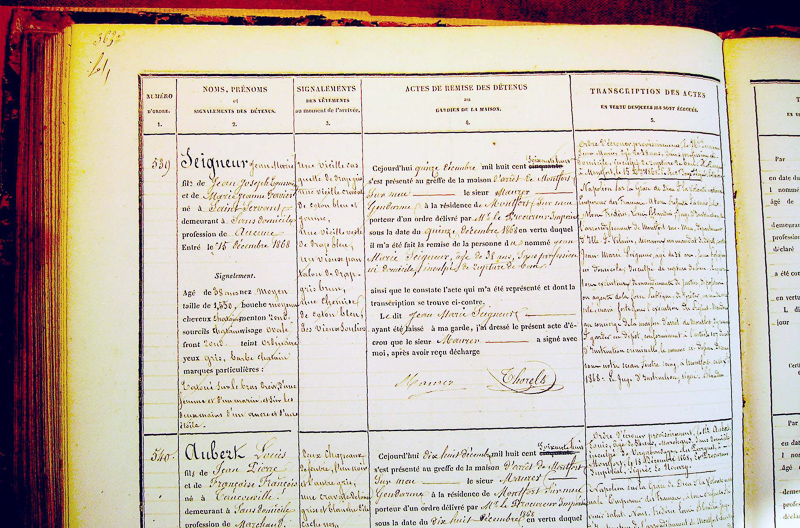CONJUGATION OF THE FRENCH VERB VAGABONDER
INDICATIF
TEMPS SIMPLES
Présent
je vagabonde
tu vagabondes
il/elle vagabonde
nous vagabondons
vous vagabondez
ils/elles vagabondent
Imparfait
je vagabondais
tu vagabondais
il/elle vagabondait
nous vagabondions
vous vagabondiez
ils/elles vagabondaient
Passé simple
je vagabondai
tu vagabondas
il/elle vagabonda
nous vagabondâmes
vous vagabondâtes
ils/elles vagabondèrent
Futur simple
je vagabonderai
tu vagabonderas
il/elle vagabondera
nous vagabonderons
vous vagabonderez
ils/elles vagabonderont
TEMPS COMPOSÉS
Passé composé
j'ai vagabondé
tu as vagabondé
il/elle a vagabondé
nous avons vagabondé
vous avez vagabondé
ils/elles ont vagabondé
Plus-que-parfait
j'avais vagabondé
tu avais vagabondé
il/elle avait vagabondé
nous avions vagabondé
vous aviez vagabondé
ils/elles avaient vagabondé
Passé antérieur
j'eus vagabondé
tu eus vagabondé
il/elle eut vagabondé
nous eûmes vagabondé
vous eûtes vagabondé
ils/elles eurent vagabondé
Futur antérieur
j'aurai vagabondé
tu auras vagabondé
il/elle aura vagabondé
nous aurons vagabondé
vous aurez vagabondé
ils/elles auront vagabondé
SUBJONCTIF
TEMPS SIMPLES
Présent
que je vagabonde
que tu vagabondes
qu'il/elle vagabonde
que nous vagabondions
que vous vagabondiez
qu'ils/elles vagabondent
Imparfait
que je vagabondasse
que tu vagabondasses
qu'il/elle vagabondât
que nous vagabondassions
que vous vagabondassiez
qu'ils/elles vagabondassent
TEMPS COMPOSÉS
Passé
que j'aie vagabondé
que tu aies vagabondé
qu'il/elle ait vagabondé
que nous ayons vagabondé
que vous ayez vagabondé
qu'ils/elles aient vagabondé
Plus-que-parfait
que j'eusse vagabondé
que tu eusses vagabondé
qu'il/elle eût vagabondé
que nous eussions vagabondé
que vous eussiez vagabondé
qu'ils/elles eussent vagabondé
CONDITIONNEL
TEMPS SIMPLES
Présent
je vagabonderais
tu vagabonderais
il/elle vagabonderait
nous vagabonderions
vous vagabonderiez
ils/elles vagabonderaient
TEMPS COMPOSÉS
Passé (1ère forme)
j'aurais vagabondé
tu aurais vagabondé
il/elle aurait vagabondé
nous aurions vagabondé
vous auriez vagabondé
ils/elles auraient vagabondé
Passé (2ème forme)
j'eusse vagabondé
tu eusses vagabondé
il/elle eût vagabondé
nous eussions vagabondé
vous eussiez vagabondé
ils/elles eussent vagabondé
IMPÉRATIF
TEMPS SIMPLES
